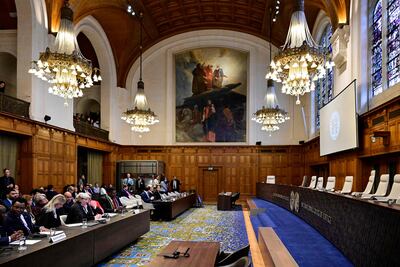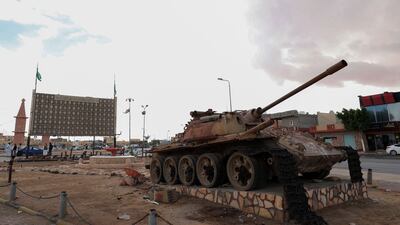The international order has experienced profound changes since the Peace of Westphalia, a set of two treaties signed in 1648 that laid the foundation for the modern state system. Key events, such as the September 11 attacks, the subsequent war on terror, the invasion of Iraq and the Arab uprisings, have significantly reshaped global dynamics.
These developments have weakened traditional state institutions and enabled the rise of non-state actors. In a world increasingly defined by globalisation, technological advancements and shifting power dynamics, the concept of the state is undergoing a fundamental transformation.
The emergence of parallel states – entities that operate alongside or within established state systems – challenges the conventional notion of state sovereignty and raises important questions about the implications for the international order.
The term “parallel state” refers to a governance model that co-exists with the recognised state structure, characterised by alternative power arrangements, informal networks and non-state actors. These actors may include organised crime groups, insurgent organisations, multinational corporations and even NGOs that wield considerable influence over political, economic and social spheres.
Unlike traditional states, which derive their authority from a monopoly on governance and even violence, parallel states often operate in a nebulous space, challenging state power and complicating the concept of sovereignty. Numerous entities exemplify the features of parallel states.
In conflict-affected regions, such as parts of the Middle East and Africa, insurgent organisations frequently establish their own governance frameworks, providing services and security in the absence of effective state oversight. These organisations can garner popular support by addressing local concerns, thereby undermining the central government’s legitimacy. Similarly, organised crime groups can develop parallel economies that operate beyond legal constraints, influencing local and even national political dynamics.
In some cases, these entities may infiltrate state institutions, blurring the lines between legitimate governance and illicit conduct. The rise of transnational corporations also contributes to the emergence of parallel states, as these entities can exert significant influence over national policies, often prioritising profit over public welfare.
The presence of parallel states fundamentally challenges the established notion of state sovereignty, which is based on the idea that a state has exclusive dominion over its territory and population. As these parallel entities gain strength, they can diminish the state’s capacity to govern effectively, leading to a fragmentation of authority. This phenomenon is particularly evident in failed or fragile states, where the central government struggles to maintain control, allowing parallel structures to emerge and thrive.
Additionally, the rise of parallel states complicates the international legal framework that governs state interactions. The principle of non-interference in domestic affairs, a cornerstone of international relations, becomes increasingly difficult to uphold when non-state actors play a significant role in shaping political outcomes. This situation raises critical questions about accountability and legitimacy, as these parallel entities may not adhere to the same norms and standards expected of recognised states.

The implications of parallel states for the international order are significant and multifaceted.
First, the rise of these entities can lead to increased instability and conflict, as competing power structures vie for dominance. This instability can spill over into neighbouring countries and possibly even lead to regional crises.
Second, the existence of parallel states challenges the effectiveness of international institutions and agreements. Traditional diplomatic efforts may falter when non-state actors are involved, as these entities often operate outside the purview of international law. This reality necessitates a re-evaluation of how the international community engages with such actors, potentially leading to new frameworks for co-operation and conflict resolution.
Finally, the emergence of parallel states underscores the need for a more nuanced understanding of sovereignty in the 21st century. As the lines between state and non-state actors blur, policymakers must deal with the complexities of governance in a world where power is increasingly decentralised. This shift may require innovative approaches to international relations, emphasising collaboration and adaptability in the face of evolving challenges.
There is no doubt that the concepts of nation-state, sovereignty and non-intervention are fundamental to maintaining international order. After all, they provide a framework for peaceful co-existence and co-operation among states, enabling them to address global challenges collectively. However, these principles must adapt to the changing dynamics of the contemporary world.
As entities operating alongside, or within, state structures continue to gain influence, it is vital for practitioners to comprehend the complexities of this phenomenon. By doing so, we can more effectively navigate the challenges of governance in an increasingly interconnected world, fostering a more stable and equitable international system.


